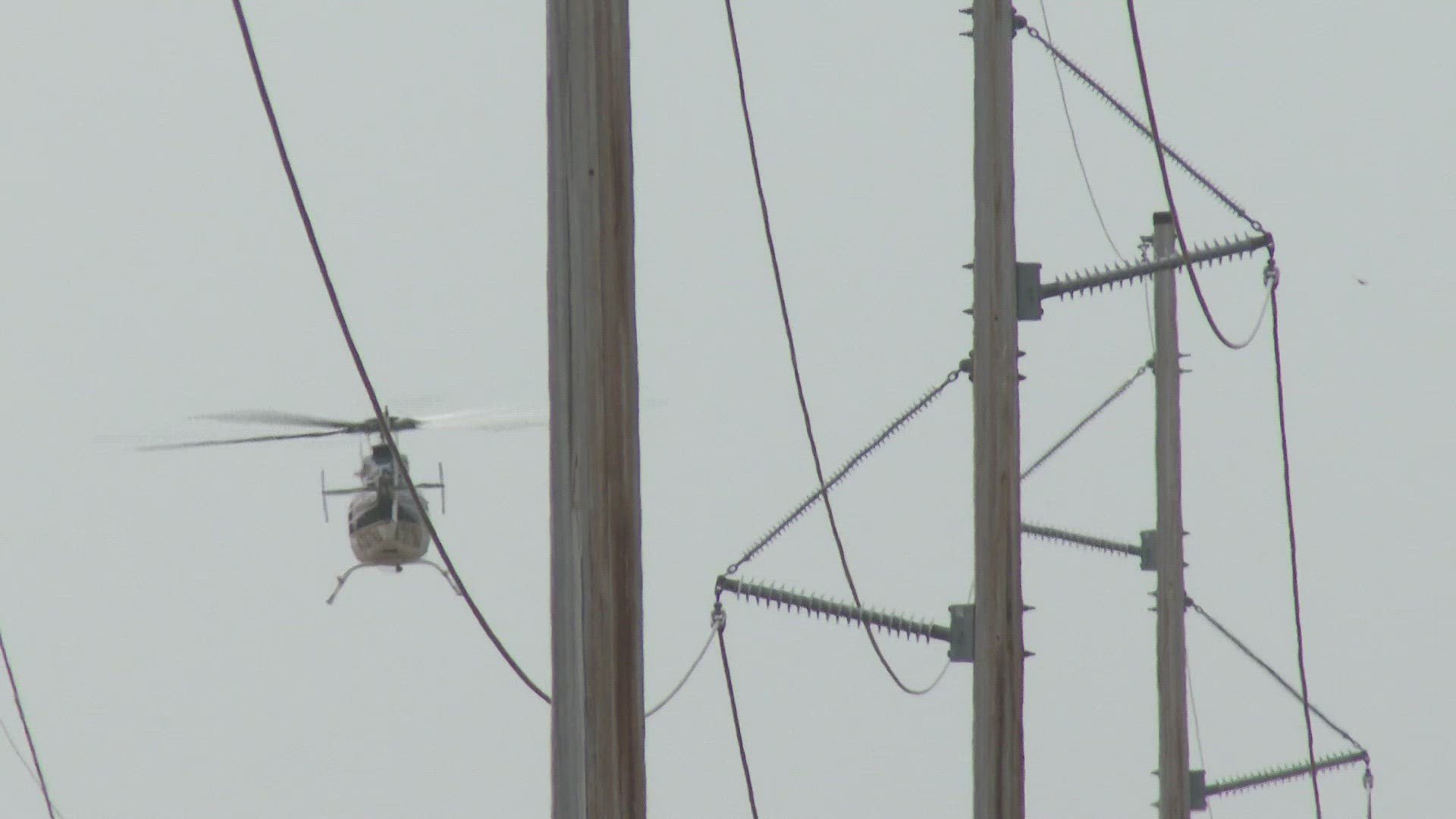SANFORD, Maine — Central Maine Power wrapped up its spring season of helicopter inspection patrols in early June as a preventative method to spot potential outages and fix them proactively.
The patrol comes as the Maine Public Utilities Commission unanimously approved CMP’s multi-year rate plan. The average CMP customer will see a 1% increase in 2023, a 2% increase in 2024, and a 2% increase in 2025.
“We know Mainers are feeling the impact of high costs. This plan is designed to minimize the impact to our customers and create rate stability while allowing us to continue making critical reliability investments to our electric grid,” said Jon Breed, spokesperson for CMP.
One of those "reliability investments" is new technology coming to CMP's helicopter inspection program. The company is adding infrared devices called "corona sensors."
According to Vermont Electric Power Company,
Corona is a phenomenon associated with all transmission lines. Under certain conditions, the localized electric field near energized components and conductors can produce a tiny electric discharge, or corona, that causes the surrounding air molecules to ionize, or undergo a slight localized change of electric charge. Utility companies try to reduce the amount of corona because, in addition to the low levels of noise that result, corona is a power loss. And in extreme cases, it can damage system components over time.
CMP piloted the corona sensors in 2022 and is now using it on all helicopters contracted for these aerial inspections in 2023.
"It's really neat the rate at which technology is advancing, and it allows us to be more efficient and find ways to prevent outages from occurring by using that technology," said Adam Desrosiers, vice president of electric operations for CMP. "We found multiple issues that allowed us to proactively replace that equipment prior to an outage occurring, which is a significant — what we consider — save to find those issues and remedy them before an outage occurs."
Desrosiers said the company has roughly 3,000 miles of transmission lines to assess each year. He said the helicopters give them a unique and helpful advantage point that eliminates unnecessary safety risks for line inspectors.
"If we were to do that on foot or utilizing snowmobiles or ATVs, it would take a significant lead longer to perform those inspections," Desrosiers said.
CMP plans to do another round of these helicopter inspections in the fall.

